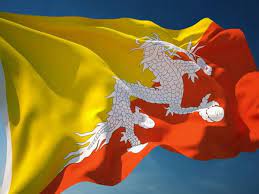THIMPHU [Bhutan], Feb 11: Bhutan’s Paro town’s district Waste Management Committee has drafted a by-law to achieve its target of becoming a waste-free district in the next few years, The Bhutan Live reported.
Consultation and familiarization meetings on the draft by-law were held with the district’s local leaders, institutions, and regional offices, recently, according to The Bhutan Live. The by-law will also be put up in the upcoming Duzongkhag Tshogd for endorsement. When the by-law is implemented, it will become mandatory for all the Gewog offices to build a waste drop-off facility in their Gewog. People in Paro town will also be charged a minimum fee while dumping waste in garbage trucks. Similarly, garbage trucks will also be made available after office hours for the convenience of office goers.
The Waste Management Committee which was chaired by Paro Dzongda, also included officials from the municipal office, Gups and the district environment officer.
According to authorities, a fee is being levied to encourage segregation and sustain the implementation of the new system.
A member of Paro’s Waste Management Committee, Gyelpo Tshering, the Wangchang Gup, said the by-law will encourage people to practise segregation at source and produce less waste going to dump yards.
“If we do that, recyclable wastes could go to scrap dealers and degradable ones will go to their designated place. Then, it would not overwhelm the dump yards. Meanwhile, when we execute the by-law it would require some amount of money to function and sustain, for that we thought the fee collection would help,” Tshering said, as quoted by The Bhutan Live.
The Bhutan Live recently reported that Bhutan is on its way to graduate from the Least Developed Countries (LDC) status by June 2023.
To graduate the status, countries are expected to follow a smooth transition strategy. Macroeconomic stability, product space diversification, and disaster resilience are some of the parameters recommended for inclusion in Bhutan’s transition strategy.
According to officials, a change in Bhutan’s status will not affect the country’s foreign aid support. The graduation’s impact will mainly be seen in three LDC-specific international support measures (ISM) related to international trade, development cooperation (ODA) and contributions to the funding of the UN system, support for travel to official meetings, scholarships, and research grants.
According to The Bhutan Live, Bhutan currently benefits from LDC-specific preference schemes granted by developed countries under the Generalised System of Preferences (GSP) scheme, which provides for tariff exceptions, and duty-free and quota-free (DFQF) market access such as in EU and Japanese markets. (ANI)


